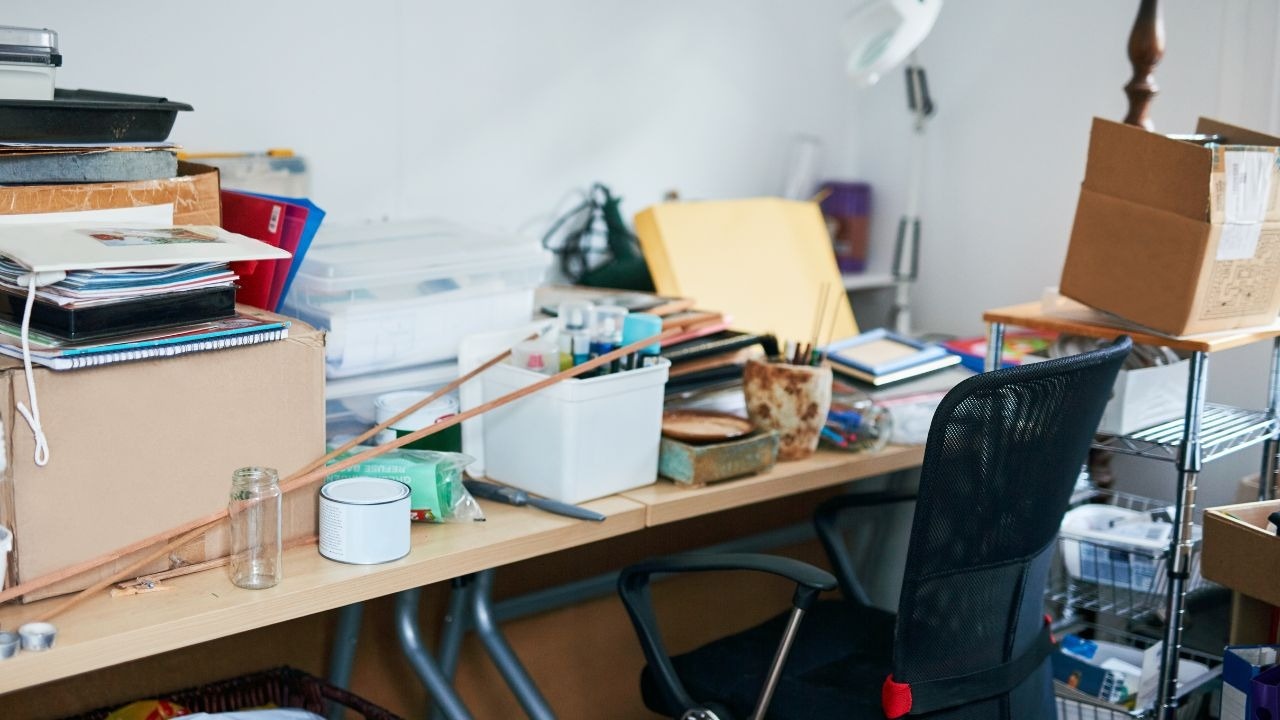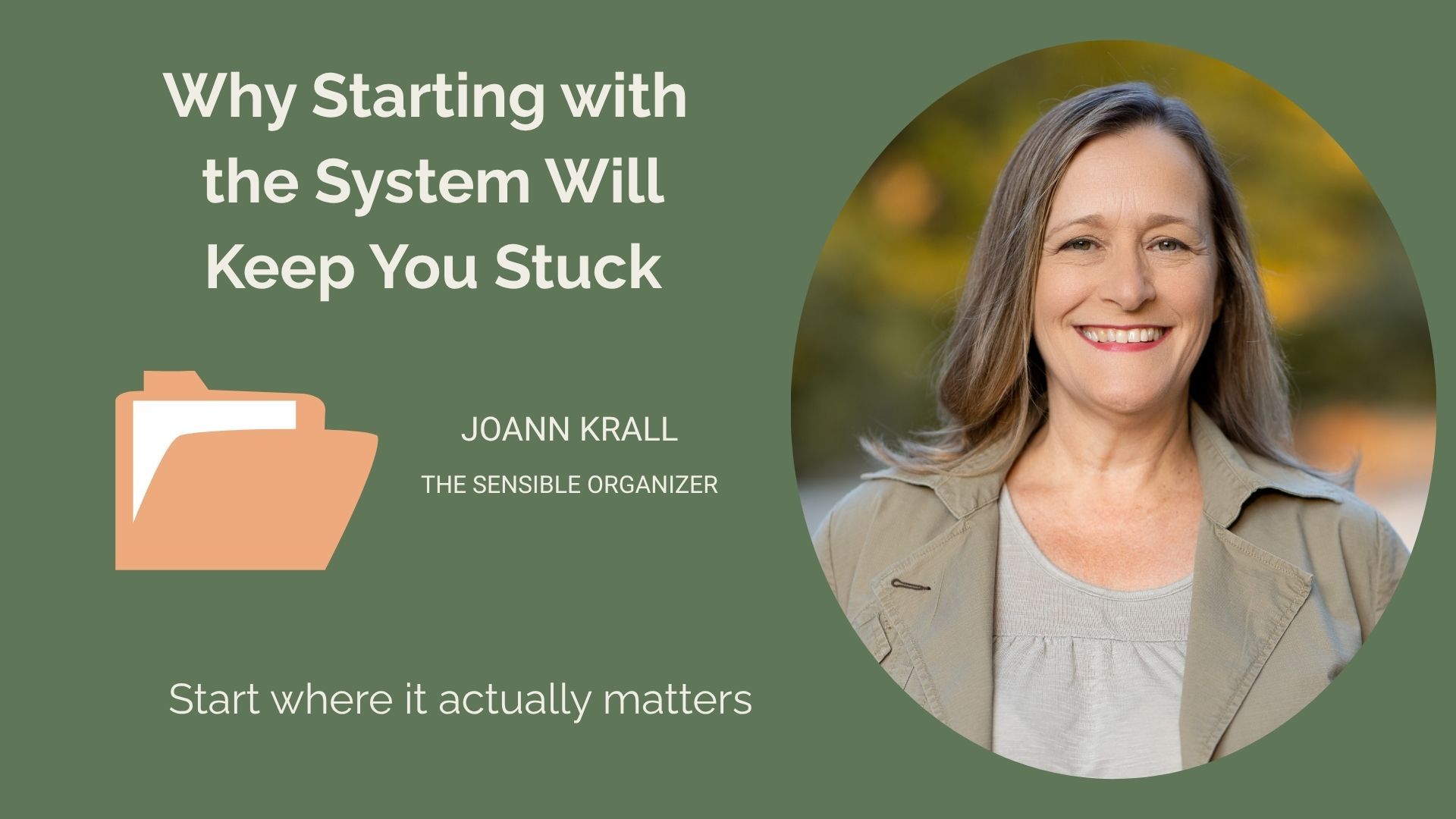
Approximately 54% of Americans are self-described as disorganized. Are you one of them?
Here are some signs you might be disorganized:
✔️ You’re constantly running late for meetings and appointments
✔️ Dates and deadlines always seem to surprise you (yes, your sister’s birthday still comes every November!)
✔️ You scrounge around to find items constantly like keys, your wallet, important papers, and that gift you were going to ship out that you swear you put “right here”
✔️ You feel stuck in eternal digital overwhelm with too many pictures, files, and emails?
✔️ You have lots of closets you’re too scared to open because of the avalanche of stuff that will fall out on you if you do
✔️ You’re afraid of adding anything else to your life for fear it might break you
Most of us could stand to be more organized. And for many, being disorganized ripples out to many aspects of life including emotional, financial, and interpersonal.
Ready to look at what might be getting in your way when it comes to getting organized and gain some practical tips and strategies to remove the obstacles holding you back?
4 Common Reasons You’re Disorganized (and what to do about it!)
You Struggle to Let Things Go
I see this often when working with my clients. They simply have too much stuff and hesitate to let go of it. I hear people say things like:
What if I need it someday?
This belonged to my great-great grandmother’s uncle’s cousin… I can’t possibly get rid of it…
The money’s already been spent, I may as well keep it now.
I’d feel so guilty throwing it away, it was a gift!
There are all sorts of reasons for holding onto stuff from sentimental reasons to worrying it might come in handy down the road, to guilt and other psychological factors.
Start by getting honest with yourself and asking yourself, “What’s the purpose of this?” Why are you really holding on to it?
When evaluating your clutter, your too-full to-do list, your social calendar, and your digital files, evaluate:
Do I need it?
Do I love it?
If the answer is yes to either of these questions, you keep it. If it’s no to one or both, you can likely get rid of it. The reality is, most of what we hang onto thinking we’ll need it in the future (even though we haven’t touched it in years) we never end up needing, or it’s easily replaceable down the road if we do!
Just because you’ve spent money on something or someone else has, doesn’t mean it needs to continue weighing you down and keeping you living in clutter and disorganization.
It’s ok to let go.
You Fell into This Mess
You might not actually be disorganized by nature, but perhaps you’ve inherited stuff, married into clutter, or have kids running around causing chaos in what you wish was an orderly environment. Perhaps you just simply don’t have the energy you need to harness to keep all the clutter at bay, and the people in your life are just making it worse.
First of all, let’s take a deep breath together. The key to tackling situational clutter is to not allow ourselves to spiral into overwhelm and focus on taking it one step at a time.
You may need to have a frank and honest conversation with anyone in your life that’s perpetuating the problem and explain how it makes you feel.
Encourage openness and honesty during the conversation and allow those you’re speaking with to share their emotions and feelings as well. Help others understand why you’re doing this and how it will impact them for the better (because you will be happier and more peaceful and so will they!). Then, start working through the disorganization -one thing at a time.
If it’s in your home or a family member’s home, begin with just one drawer, closet, surface, or room, at a time. If it’s your spouse’s disorganization, provide them with a space to keep their things, where it won’t cause you stress. Help create systems that work for both of you that will provide organization around things like paying bills, mail, appointments, laundry, and kitchen organization.
The key is to start small and tackle a little bit at a time. Help family members see the value in decluttering as you go and think together creatively as to how to make the additional space usable and able to be enjoyed!
The good news about situational clutter is it’s often a season we move through. Staying focused on the bigger picture and the why can help keep us from getting discouraged and bring others on board with the efforts too.
Procrastination
Many people procrastinate starting or completing organizational tasks. They might feel completely overwhelmed with how much there is to do, lack motivation, not want to start if it can’t be done perfectly, or struggle with indecision.
Procrastination can lead to disorganization as things begin to pile up. My best procrastination remedy is to take things very small, one step at a time, and give yourself milestones and rewards along the way as you complete things.
Some people like to tackle the hardest things first, and others prefer to ease their way in with quick wins and work up to the tougher stuff. You might find that an accountability partner is just what you need to keep you on track or block off time in your calendar to organize.
Determine what next best step is right for you and countdown: 5,4,3,2,1… then take it.
You Have Too Much Stuff
Being overcommitted and having too much stuff, in general, is the number one reason I see regularly for people being disorganized.
I always remind my clients: You can’t organize clutter.
If your calendar, desk, filing cabinet, bedroom closet, or house is just TOO full, you will have a hard time taming the beast.
Begin by getting rid of what you don’t need. Start in one section of one room, and work your way around. Begin by just removing what you don’t need, don’t jump ahead to where everything else will go, and purge, purge, purge.
Click here to read my blog on how to simplify and get rid of what no longer serves you in a systematic, calm, and practical way.
Let it go.
Remember, there’s no shame in being disorganized. It’s simply a matter of finding what works for you and putting it to work!
Need help finding one? Learn about my Declutter & Get Organized Resource Hub Membership HERE.
Stay connected with news and updates!
Join my mailing list to receive the latest news and updates.
Don't worry, your information will not be shared.
We hate SPAM. We will never sell your information, for any reason.

